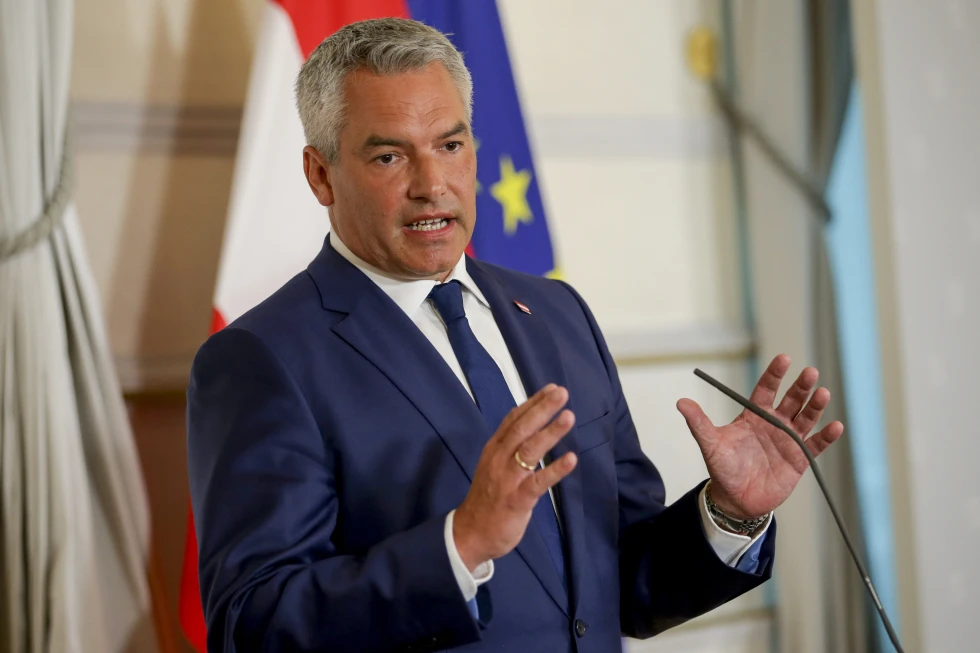Austrian Chancellor Karl Nehammer has announced his resignation after a second round of coalition talks to form a new government ended in failure. The discussions between the People’s Party and the Social Democrats broke down on Saturday, following the surprise withdrawal of the liberal Neos party.
Nehammer, leader of the conservative People’s Party, attributed the collapse to “destructive forces” within the Social Democrats and declared he would not support policies he believed would harm Austria’s economic competitiveness.
Social Democratic leader Andreas Babler expressed regret over the breakdown of talks, calling it a poor decision for the country. Babler cited internal resistance within the People’s Party as a major barrier to forming a coalition, even as he praised Nehammer’s willingness to negotiate.
A key point of contention was how to address Austria’s “record deficit,” compounded by two years of economic recession, rising unemployment, and a budget deficit of 3.7% of GDP—exceeding the EU limit. Babler urged Nehammer to resume negotiations but was met with resistance.

The failure of the coalition talks leaves Austria facing significant challenges. The next government will need to implement measures to save between 18 to 24 billion euros, according to the EU Commission. The narrow one-seat parliamentary majority held by the People’s Party and Social Democrats made their proposed coalition inherently unstable. Nehammer’s resignation sets the stage for a leadership change in the People’s Party, which could lead to a shift in their coalition strategy.
Nehammer’s departure may force the People’s Party to reconsider its options, including a potential alliance with the far-right Freedom Party, which it currently collaborates with at the local level in several regions.
Nehammer had previously ruled out such a coalition, but new leadership might take a different approach. Alternatively, an early election could be called, though election laws make it unlikely before May. Party officials are expected to meet on Sunday to discuss leadership succession and potential paths forward.
The Freedom Party, which secured 29.2% of the vote in a September election and has since increased its support, remains a central force in Austrian politics. Its leader, Herbert Kickl, criticized Nehammer, Babler, and President Alexander Van der Bellen for failing to bring stability to the government and suggested the president must now take responsibility for resolving the situation. With coalition possibilities uncertain, Austria’s political parties face critical decisions in the coming weeks.


